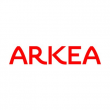US T+2 migration guidance published
 An “Implementation Playbook” detailing the timeline, milestones and dependencies involved in migrating the US equities, fixed income and unit trust markets to a two-day settlement cycle has been published by the T+2 Industry Steering Committee.
An “Implementation Playbook” detailing the timeline, milestones and dependencies involved in migrating the US equities, fixed income and unit trust markets to a two-day settlement cycle has been published by the T+2 Industry Steering Committee.
Developed with Deloitte Advisory and the T+2 Industry Working Group, the playbook builds on a June white paper that outlined the high-level industry requirements and a high-level timeline for shortening the settlement cycle. The proposed T+2 implementation timeline – aiming to complete migration by Q3 2017 – was developed following consultation input from more than 600 industry participants across 12 market segments.
Guidance is provided on issues such as trade processing, asset servicing, documentation, regulatory changes, testing/migration, industry actions and other considerations for achieving a T+2 settlement cycle. It also includes implementation timelines that provide a suggested guideline for regulatory actions, industry actions, market participant implementation, industry testing, and migration milestones and dependencies identified by the industry.
“The industry’s work with Deloitte Advisory to develop an Implementation Playbook is a critical next step to help ensure that all market participants have the tools and knowledge they need to prepare their individual firms to be T+2 ready,” said Tom Price, co-chair of the T+2 ISC and managing director of Sifma’s technology, operations and business continuity group. “Active engagement from all market participants and regulators is essential to keep this process moving forward. We are committed to working as a broad industry coalition to make the T+2 settlement cycle a reality.”
Michael Bodson, president and chief executive at DTCC, said: “The release of the Implementation Playbook is an important step as the US moves closer to a T+2 cycle. I commend the T+2 ISC for continuing to advance this industry wide initiative,” said. “Industry participants now have the key information needed as we work towards our ultimate goal of moving to a two-day settlement cycle.”











































